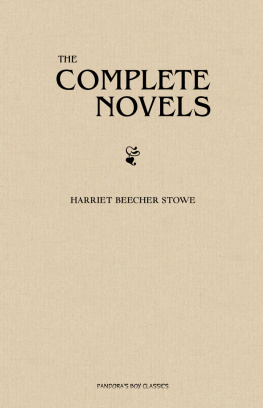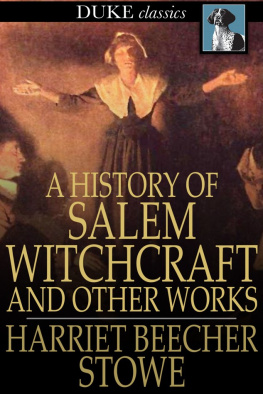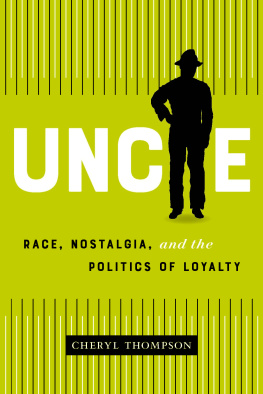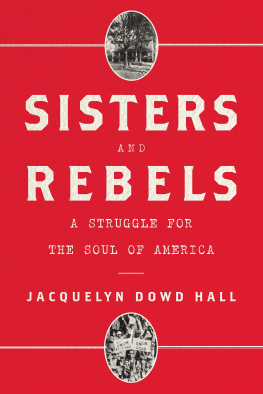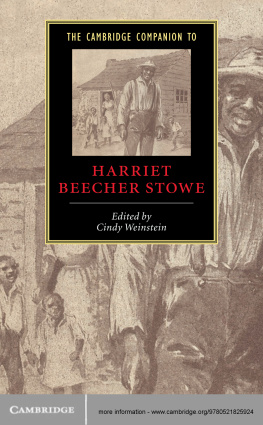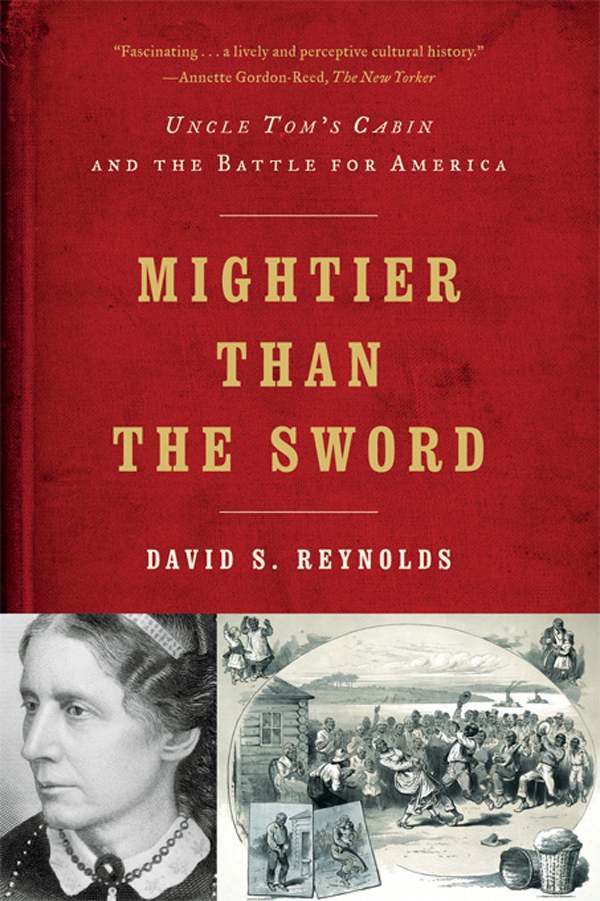
ALSO BY DAVID S. REYNOLDS
Waking Giant: America in the Age of Jackson
John Brown, Abolitionist: The Man Who Killed Slavery,
Sparked the Civil War, and Seeded Civil Rights
Walt Whitmans America: A Cultural Biography
Beneath the American Renaissance: The Subversive Imagination
in the Age of Emerson and Melville
Faith in Fiction: The Emergence of Religious Literature in America
Walt Whitman
George Lippard
Uncle Toms Cabin: The Splendid Edition, by Harriet Beecher Stowe
(editor)
Leaves of Grass: The 150th Anniversary Edition, by Walt Whitman
(editor)
Venus in Boston and Other Tales of Nineteenth-Century American Life,
by George Thompson (coeditor with Kimberly Gladman)
A Historical Guide to Walt Whitman (editor)
The Serpent in the Cup: Temperance and American Literature
(coeditor with Debra A. Rosenthal)
The Quaker City; or, The Monks of Monk Hall, by George Lippard (editor)
George Lippard, Prophet of Protest: Writings of an
American Radical, 18221854
(editor)
To my wife,
Suzanne Nalbantian Reynolds
Copyright 2011 by David S. Reynolds
All rights reserved
Printed in the United States of America
First published as a Norton paperback 2012
For information about permission to reproduce selections from this book,
write to Permissions, W. W. Norton & Company, Inc.,
500 Fifth Avenue, New York, NY 10110
For information about special discounts for bulk purchases, please contact
W. W. Norton Special Sales at specialsales@wwnorton.com or 800-233-4830
Manufacturing by Courier Westford
Book design by Dana Sloan
Production manager: Anna Oler
Library of Congress Cataloging-in-Publication Data
Reynolds, David S., 1948
Mightier than the sword : Uncle Toms Cabin and
the battle for America / David S. Reynolds. 1st ed.
p. cm.
Includes bibliographical references and index.
ISBN 978-0-393-08132-9 (hardcover)
1. Stowe, Harriet Beecher, 18111896. Uncle Toms cabin.
2. Stowe, Harriet Beecher, 18111896Influence.
3. Didactic fiction, AmericanHistory and criticism. I. Title.
PS2954.U6R39 2011
813.3dc22
2011000702
ISBN 978-0-393-34235-2 pbk.
W. W. Norton & Company, Inc.
500 Fifth Avenue, New York, N.Y. 10110
www.wwnorton.com
W. W. Norton & Company Ltd.
Castle House, 75/76 Wells Street, London W1T 3QT
1 2 3 4 5 6 7 8 9 0
More Praise for
M IGHTIER THAN THE S WORD
Informative.... Reynolds is a rewarding researcher.
Andrew Delbanco, New York Times Book Review
Compact, clear, and packed with astonishing facts and provocative insights, this book will fascinate everyone from the general reader to the professional historian.
Debby Applegate,
Pulitzer Prizewinning author of
The Most Famous Man in America: The Biography of Henry Ward Beecher
A valuable and engaging survey of [ Uncle Toms Cabin s] genesis and legacy, from its role in antebellum culture and politics to its echoes in milestone films and novels like The Birth of a Nation , Gone with the Wind , and Roots .
Salon
You can always count on David Reynolds to surprise and delight, and in his latest work, he does not disappoint.... Nothing less than an intellectual feast.
Jay Winik, author of April 1865 and The Great Upheaval
Clear and informative, Mightier than the Sword is a research-driven yet readable history.
Anne Trubek, Cleveland Plain Dealer
Reynolds writes in a clear and readable fashion, and a book that could be didactic and cumbersome is instead easy to read and digest, in part because of the odd and quirky details the author uncovers.
Marilyn Greenwald, Pittsburgh Post-Gazette
A wonderful history of what may justly be considered Americas national epic.... A sweeping narrative of the life of a book that continues to engage race, nation, democracy, and Christianity in a contentious drama.
Joan D. Hedrick, Pulitzer Prizewinning author of
Harriet Beecher Stowe: A Life
[Reynolds] deftly traces veins of popular culture to emphasize Stowes continuing influence, thereby revising conventional interpretations.
J. Kirkpatrick Flack, East Hampton Star
While the author ably describes the influences and experiences that inspired Stowe to write the book, the story of its reception and impact is where Reynoldss work really astounds. American life after 1852, as Reynolds shows, takes place atop a cultural foundation laid by Uncle Toms Cabin .
Jeff McMillan, California Literary Review
A provocative overview of the life and afterlife of one of American literatures most important texts.... A sharp work of cross-disciplinary criticism that gives new power to a diminished novel.
Kirkus Reviews, starred review
Reynolds is a virtuoso writer.... A fitting tribute to the 200th anniversary of Harriet Beecher Stowes birth.
Publishers Weekly
All serious students of 19th-century American literature and culture will want to read [ Mightier than the Sword ].
Library Journal
Contents
Introduction
O n Harriet Beecher Stowe attended a concert held at the Boston Music Hall in celebration of Abraham Lincolns expected signing of the Emancipation Proclamation. Of the many galas held in the North that historic day, this one was especially impressive. Among the crowd of three thousand were Emerson, Longfellow, Whittier, Francis Parkman, and Oliver Wendell Holmes.
Two weeks earlier, Stowe had written her friend Charles Sumner, chair of the Senate Foreign Relations Committee, in New England says to me with anxious earnestness Will the President stand firm to his Proclamation? The answer came during intermission at the Music Hall event. A speaker announced that the news had come over the wires that the president had signed the Proclamation, freeing millions of slaves in states disloyal to the Union. The hall erupted with applause, shouts, and handkerchief-waving. Three cheers went up for Lincoln. Three more followed for William Lloyd Garrison, mingled with hisses from those still hostile to the controversial abolitionist.
When Stowe was spotted in the balcony, a new chant swept through the hall: Harriet Beecher Stowe! Harriet Beecher Stowe! Harriet Beecher Stowe! Urged forward by those seated near her, her bonnet toppling off, she went to the railing, bowing and waving to the throng.
At that moment, the plain fifty-one-year-old Stowe, just five feet tall, was the most famous woman in America. Her wide-set eyes, which normally had a distant dreaminess, sparkled with emotion as tears flowed down her cheeks and her ample mouth broadened into a grin. Her aquiline nose gave her face a firm dignity that was softened by her gently sloped forehead and round cheeks framed by graying curls.
The crowd, convinced that she had helped make this moment possible, was responding to the torrent of energy unleashed by Stowes antislavery best-seller Uncle Toms Cabin; or, Life among the Lowly , published a decade earlier.
Did Lincoln feel this way about the novel, too? A month before the Boston event, Stowe had visited him in the White House to urge him to sign the Proclamation. His alleged greeting of her who made this great war?is the most famous statement ever made about Uncle Toms Cabin . Whether he actually said it is moot. In his era, many claimed that Stowe had brought on the Civil War.
Surprisingly, this crucial topic has never been discussed in detail. Although the novel is vaguely associated in most peoples minds with the Civil War, several modern commentators have tried to argue that it had only a minimal influence on the political decisions leading to the war. One maintains that does a novel have the power to move a nation to battle?
Next page

